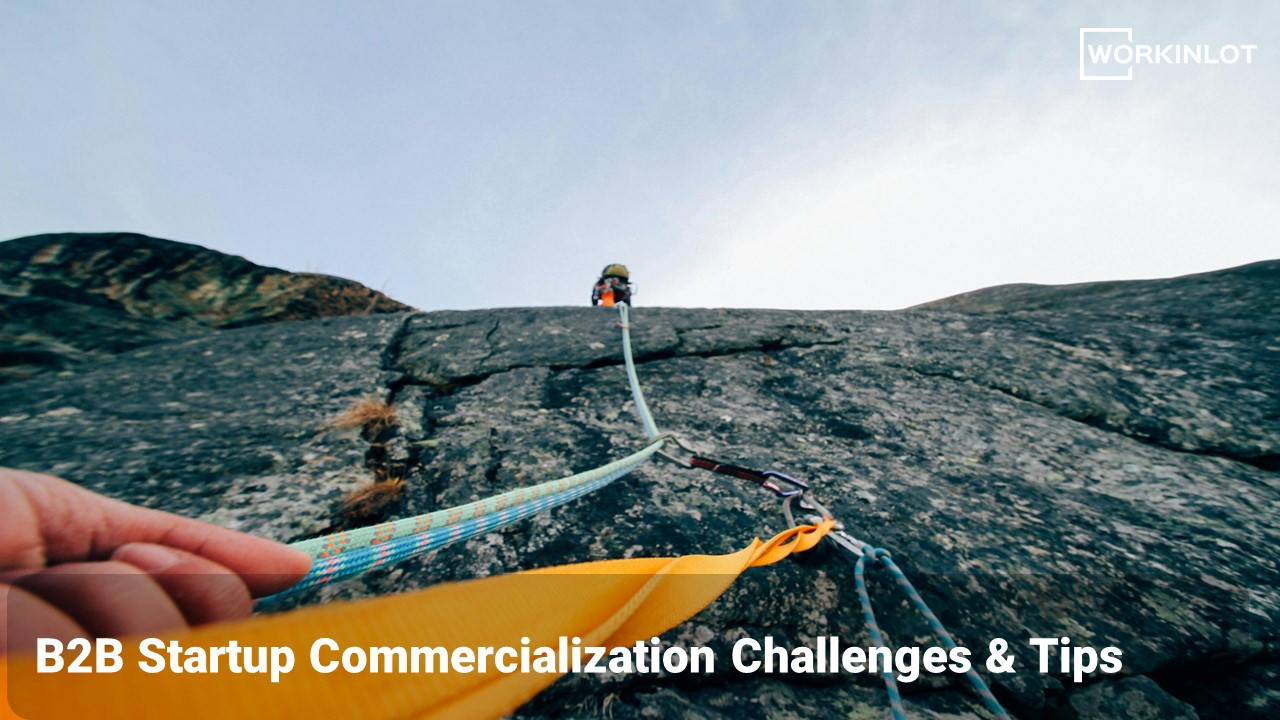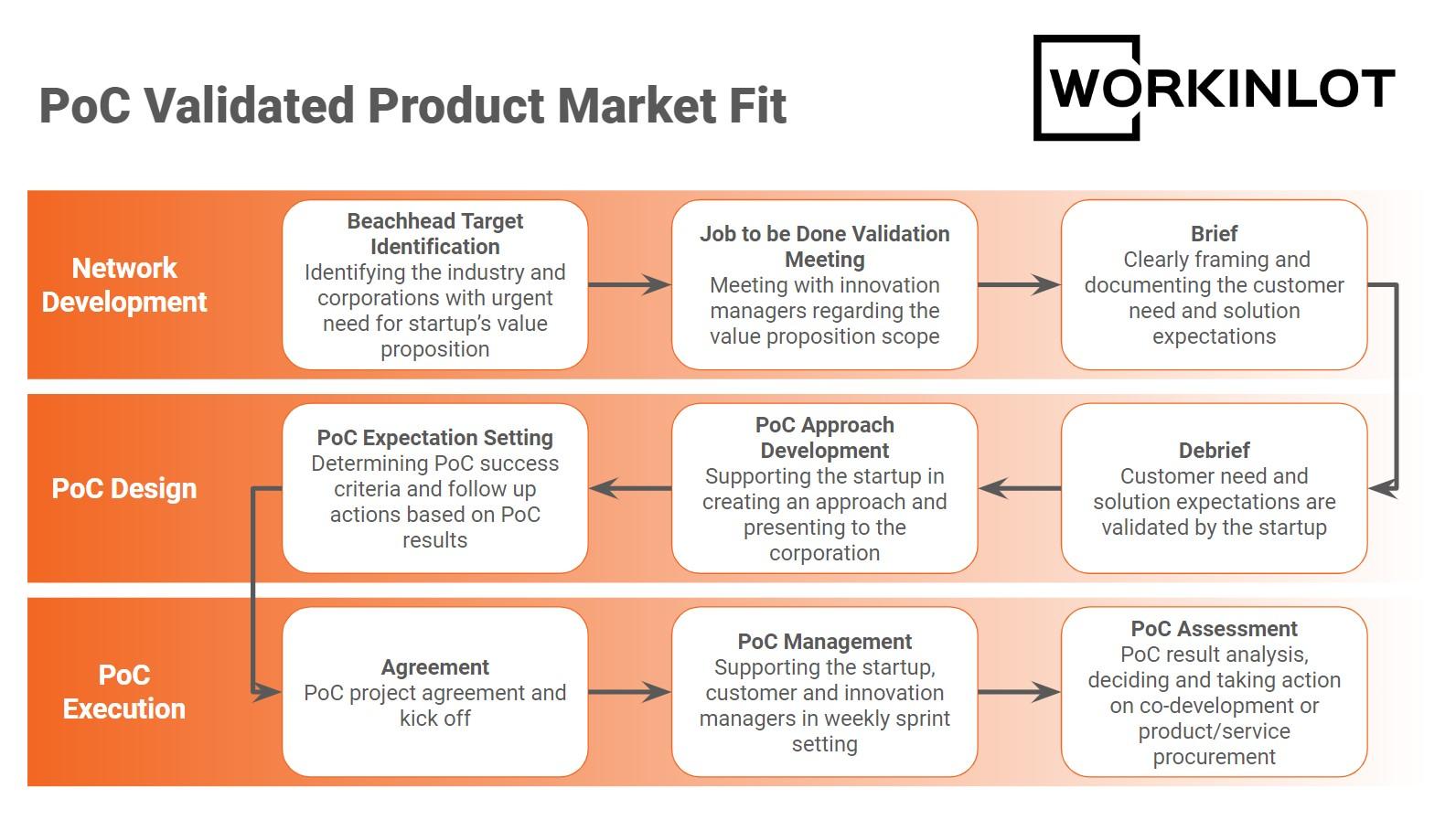
Cover photo by Riccardo
Collaboration with enterprise clients is a critical milestone for the commercialization of B2B startups.
This collaboration is challenging because enterprises and startups have distinct objectives.
Enterprises' primary motivation for collaborating with startups is the ability to execute quickly and share the risk of exploring new markets, business models, and technologies.
A startup's motivation in working with an enterprise might vary with the stage of the startup.
Enterprises are obliged to offer consolidated products for their customers. As for startups, they are obliged to quickly test and validate new technologies and business models. (How PoCs Help Businesses Unlock Startup Potential)
Although these two structures are different, collaboration can have a leverage effect.
The main motivation for early-stage startups is identifying problem-fit. At the early stage, engagement with corporate customers helps validate the real demand. Commercialization and scalability are next in line. (Unlocking B2B Startup Value: A Stage-by-Stage Guide)
Startups executing a successful problem-fit collaboration with an enterprise are more likely to develop strategic or financial partnerships.
PoC projects between startups and enterprises create insight for both parties. Having said that, not every collaboration effort ends successfully. (PoC Data and Business Intelligence)
There are some distinct reasons why B2B startups fail to work with enterprises and commercialize:
Product Market-Fit Problems:
Lack of product-market fit: The startup's core product or service does not solve a real pain point for target companies or offers features they do not value. But, that's not the end for the startup. A startup we identified and facilitated engagement with local enterprises in 2017, turned this problem into an opportunity. The startup developing software and hardware for the charging processes of EVs chose to relocate to San Francisco, a more suitable market to work on its main value proposition, and got invested after market-fit.
B2B purchasing cycle dissonance: Corporate purchase decision-making is complex and often involves multiple signoffs. This is something that startups sometimes underestimate. Yes, you can know the company you want to work with. However, it is not always easy to find the right person in charge. We even came across cases where startups went to the production facilities of industrial companies and tried to sell products, ending in frustration in almost all cases. (B2B Startup - Identifying a PoC Corporate Partner)
Underestimating the competition: Failing to research and understand the competitive landscape is also a significant obstacle to the commercialization of B2B startups. Assuming you have no competitors is an indication that either there is no need for the proposed solution or the startup cannot differentiate itself. If you have a competitor, it means you are on the right track. We encourage you to view competitors as colleagues who help you find your way to differentiate.
Poor pricing strategy: Pricing is too high, too low, or has an unclear or complex pricing model. Enterprises can not make risky assumptions or acquisitions. If the price you demand for the value you create is not clear, it becomes difficult to purchase.

Sales and Marketing Problems
Developing business partnerships, commercialization, and investment strategies with corporations is a competency gained through experience. It's an expertise we often see lacking initially in startup teams that don't come from corporate backgrounds.
The startup's value proposition must be communicated to the right person within the company. Corporations seek trusted business partners and secure solutions. Unnecessary marketing messages, vague pricing, wrong value positioning, and inability to plan properly can break relationships.
Other Problems:
- Talent gap: Lack of necessary business development, marketing, and sales expertise in the founding team.
- Financial deficiencies: Lack of proper planning or failure to develop solutions due to financial inadequacies.
- Overreliance on technology and neglect of business fundamentals: Focusing too much on technical aspects and neglecting market strategy, sales, and marketing.
- Unrealistic expectations: Assuming every potential enterprise client is a done deal, ignoring the fact that business model validation, finding investors, and growth are sequential and need planning.
- Regulatory barriers: Complex legal and regulatory requirements can impede progress in certain industries. It is necessary to have expertise with specific industry regulations to create corporate solutions, especially in verticals like banking, where every new solution is subject to intense regulation and auditing barriers.
These are some of the common reasons why B2B startups have difficulty commercializing. B2B startups may also experience unique problems depending on the market, industry, product, and technology used.
The competence required for business development, commercialization, and investment strategies is gained through experience.
Startup learns. Corporations help scale.
Startups must objectively analyze data to learn and grow. This learning agility is essential for entrepreneurial success.
Drawing from our experience, we'll explore the challenges and strategies for B2B startup commercialization.
- Identify exactly where your talent gap is
- Learn to empathize with your target audience. Understand enterprise expectations and requirements. Ask lots of questions when you don't understand. Research their processes, purchasing policies, and decision-making structures.
- Find the right external stakeholders. You don't have the time or money to enter countless accelerator programs. Try to find a suitable accelerator or consultancy firm that is most compatible with your needs.
- Startup learn with MVPs. MVP is a research tool. You have dozens of assumptions to verify on the product, market, and business model side. The day you stop researching and questioning and stick blindly to assumptions, you start to lose.
- Startup success metrics are important telltales. Follow the right metrics to avoid getting lost among all the insights gathered. If you're tracking misleading or vanity metrics, don't hesitate to change when you realize the fact. Failures and mistakes can only work in your favor when they can be measured and necessary actions are taken.
- Be clear in your demands. Many startup presentations end with a “Thank you” page. There must be relevant demands for the startup to learn and develop at every stage. What do you want from your audience? Make sure this is clear.
- If you want a growing startup, you must gain the enterprise's trust before making money. Recommend PoC processes for trust and impartiality. Going for a sale without objectively proving the unique value will make you just another subcontractor. (PoC Data and Business Intelligence)
The list goes on and on. It's hard to fit it all in here. We don't have a short or magical solution for B2B startup founders.
If you're innovating, you're walking on a path that hasn't been walked before. In that case, focus on evaluating, measuring, and learning from what you do at every step as much as possible.